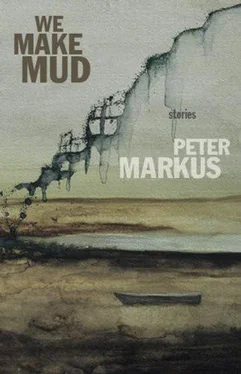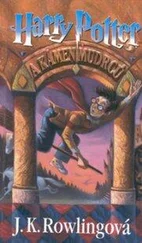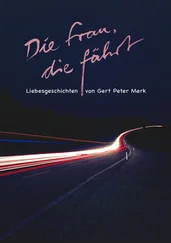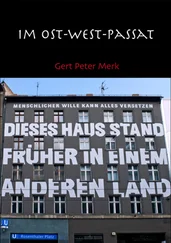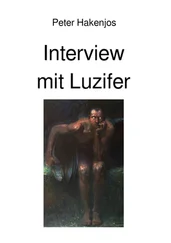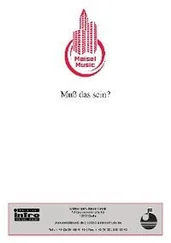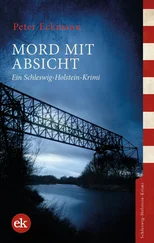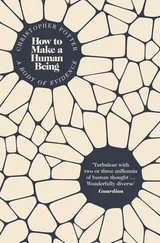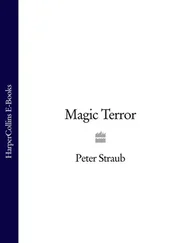Peter Markus - We Make Mud
Здесь есть возможность читать онлайн «Peter Markus - We Make Mud» весь текст электронной книги совершенно бесплатно (целиком полную версию без сокращений). В некоторых случаях можно слушать аудио, скачать через торрент в формате fb2 и присутствует краткое содержание. Год выпуска: 2011, Издательство: Dzanc Books, Жанр: Современная проза, на английском языке. Описание произведения, (предисловие) а так же отзывы посетителей доступны на портале библиотеки ЛибКат.
- Название:We Make Mud
- Автор:
- Издательство:Dzanc Books
- Жанр:
- Год:2011
- ISBN:нет данных
- Рейтинг книги:5 / 5. Голосов: 1
-
Избранное:Добавить в избранное
- Отзывы:
-
Ваша оценка:
- 100
- 1
- 2
- 3
- 4
- 5
We Make Mud: краткое содержание, описание и аннотация
Предлагаем к чтению аннотацию, описание, краткое содержание или предисловие (зависит от того, что написал сам автор книги «We Make Mud»). Если вы не нашли необходимую информацию о книге — напишите в комментариях, мы постараемся отыскать её.
We Make Mud — читать онлайн бесплатно полную книгу (весь текст) целиком
Ниже представлен текст книги, разбитый по страницам. Система сохранения места последней прочитанной страницы, позволяет с удобством читать онлайн бесплатно книгу «We Make Mud», без необходимости каждый раз заново искать на чём Вы остановились. Поставьте закладку, и сможете в любой момент перейти на страницу, на которой закончили чтение.
Интервал:
Закладка:
The Hands that Hold the Hammer
Sometimes, us brothers, we hold our hands up to each other brother, and like this, with our hands raised in the air, us brothers, we tell each other what to do. Go get the hammer, one of our hands will say to the other brother. Go get us a handful of rusty, bent-back nails. Then meet me out back in the back of the backyard. One of us brothers will pick up with his picking-up hand the bucket of ours filled with fish. The other brother’s hand will close up to make itself into a fist, its fish-out-of-water thumb sticking straight up and out from its hand to say to the other brother, Good, Brother, I’ll meet you out back in the yard. Out back in the back of the yard, one brother’s hand will say to the other brother who is doing the listening, Give me your hand. Hold your hand up against this pole’s wood. Out back in our backyard, there is a telephone pole back there studded with the chopped off heads of fish. In the end there were exactly one hundred and fifty fish heads hammered and nailed into this pole’s fish-headed wood. Us brothers, we gave each of these fish, each one of these fish’s fish heads, each a name. Not one was called Jimmy or John. Jimmy and John was mine and my brother’s name. We called each other Brother. Brother, one of our hands says. This might sting, the hand that is talking warns. And then the hand that is doing the warning, it raises back with the hammer it is holding and it drives the rusty, bent-back nail through skin and muscle and bone. The brother whose hand takes the nail through skin and muscle and bone, this is the brother who doesn’t flinch, or wince with his body, or make with his boy mouth the sound of a brother crying out. Good, Brother, the hand that holds the hammer says. The hand that is holding the hammer and a handful of rusty, bent-back nails in its other brother hand, it takes his brother’s other hand and holds this other hand back up against this backyard telephone pole’s fish-head hammered in wood. This hand with the hammer held inside it, it lines up a second rusty nail for it to hit. But when this hammering hand raises back its hammer to hit, another hand from back behind us brothers raises up as if to tell us to stop. But this hand that is raising up from back behind us brothers’ backs, it is not telling us brothers to stop. This hand that is raising up back behind us brothers, this hand that is pushing open and pushing out through our house’s back-of-the-house door, it is the hand that is our father’s. What our father’s hand is saying, when it raises up like this, all it is saying to us is, You boys be sure to remember to clean up out here before you come back into the house. This house, it is our mother’s house. Our mother, she is in the back of this house in a bed that has become her body. Us brothers, our hands, we hold them up, as high as we can hold them, to say to our father Okay, we’ll clean up before we come back in. Us brothers, our boy hands, all four of them together, they could fit inside the fishing-man hands that are our father’s. Our hands, like brothers, they close in toward each other. They raise back the hammer. They line up that rusted nail.
The Sound the Hammer Makes
This is us brothers at the age of what: two, three, five, one? Let’s go back to us being the age we were when we were one. We are one and us brothers, we are just now beginning, we are just now learning, how to walk, how to talk, how to put the world into our mouths. Listen to us talk. What were our first words to come muddling up and out of our mouths? Was it Mama? Was it water? Was it mud, or river? Was it fish? This, know this, this is how the story of us brothers goes. This is us brothers down on our hands and knees, down by the river, with our fishing-man father. We are not, with our father, fishing. What we are doing is, us brothers, we are mucking around in the mud. This is us brothers lifting up our boy heads up from the mud here at the river’s muddy edge. This is us looking up at the moon rising up and out of the river. This is us with our little boy mouths opening up to taste the taste of the muddy sky. Us brothers, us with our tongues, can you hear us, this is us saying the word fish. Even us at the age of one, even us before the age of one, us brothers, we see and us brothers we understand that the moon, it is a fish. Now, look at us brothers walking. On water? No, not quite yet. That’ll come some years later. Now, we are holding the hands of our mother — imagine that! — we are holding the hands of our father, we are, us brothers, we are holding hands with each of us brothers. When we fall, these hands are the hands that pick us brothers up. Our father’s hands are the hands that take us brothers out back into the back of our backyard, back to where there is a garage back there and a shed back there and a tree back there that does not have any branches, this tree, it doesn’t have any leaves. What kind of a tree is this? Here, back here, on the dirt and grass ground that is our world, there are things back here for us brothers to stick inside our mouths. These here are things for us brothers to eat: the dirt, the grass, the mud, tree. This is how we go about learning about our world: what can and cannot be put inside our mouths, what we can and cannot eat — dirt and worms and grass and mud and those rusty, bent-back nails that fall to the ground from the curved black claw of our father’s hammer. Back here too, in this backyard world, here is where us brothers will soon discover that dirt and grass, when it is wet outside, when it has been in the nighttime raining, the dirt turns into something other than dirt. When it rains, the dirt becomes better than dirt, it is magic to us brothers how dirt turns to mud. That word, mud, and muddy, and that other word that comes with it too: don’t. These are the sounds that come muffing out at us brothers from the mouth that is our mother’s. When our mother says to us brothers don’t, no, mud, us brothers, we always end up doing, even back here then, what our mother has just told us brothers not to do. Maybe we do what our mother says for us brothers not to do — this no, this don’t, this mud — because we like it when our mother and our father say to us these other words too: words that make the sound that a hammer sometimes makes when it hammers rusted nails into wood. You boys remember to clean up out there before you come back in. Years from us being one, us brothers, we will listen to that sound over and over again. Brother, we will say, to each other. Give me your hand. Hold your hand up against this wood. Us brothers will do what us brothers tell us to do. We are brothers. We are each other’s voice inside our own heads. This might sting, us brothers will say to each other brother. Us brothers, we will raise back the hammer in our hand. We will drive that rusty, bent-back nail right through Brother’s hand. Neither of us brothers will wince, or flinch, or make with our mouth the sound of a brother crying out. Good, Brother, Brother will say. Brother will be hammering in a second nail into us brothers’ other hand when the father of us brothers will step out into the back of our backyard. Sons, our father will call this word out. Both of us brothers will turn back our boy heads toward the sound of our father to hear whatever it is that this father is going to say to us brothers next. It will be a long few seconds. The sky above the river where the steel mill sits shipwrecked in the river’s mud, it will be dark and quiet. Somewhere, though, the sun will be shining. You boys be sure to clean up back here before you come back in, the father of us will say. This father will turn back with his voice and go back away into the inside of this house. Us brothers, we will turn back to face back with each other. Us brothers will raise back with our hammer, will line up that rusted nail.
Читать дальшеИнтервал:
Закладка:
Похожие книги на «We Make Mud»
Представляем Вашему вниманию похожие книги на «We Make Mud» списком для выбора. Мы отобрали схожую по названию и смыслу литературу в надежде предоставить читателям больше вариантов отыскать новые, интересные, ещё непрочитанные произведения.
Обсуждение, отзывы о книге «We Make Mud» и просто собственные мнения читателей. Оставьте ваши комментарии, напишите, что Вы думаете о произведении, его смысле или главных героях. Укажите что конкретно понравилось, а что нет, и почему Вы так считаете.
